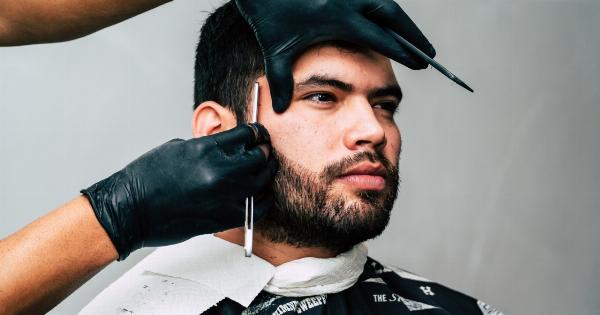Visiting the gynecologist is an essential part of a woman’s healthcare routine. However, many women experience feelings of shame or embarrassment when it comes to scheduling and attending these appointments.
These emotional barriers can prevent women from receiving the necessary medical care and attention they need. In this article, we will explore some of the reasons why women feel ashamed or embarrassed to go to the gynecologist and address ways to overcome these feelings.
1. Lack of knowledge or misinformation
One of the primary reasons women feel embarrassed about going to the gynecologist is due to a lack of knowledge or misinformation about the purpose and procedures involved in these appointments.
Social stigmas and taboos surrounding women’s health can lead to confusion and discomfort. Educational initiatives about gynecological visits can play a crucial role in dispelling myths and promoting open conversations.
2. Cultural and religious beliefs
Cultural and religious beliefs can also contribute to feelings of shame or embarrassment related to gynecological appointments.
Certain cultures or religions may discourage discussions about reproductive health or may impose restrictions on interactions with male healthcare providers. It is important for healthcare professionals to respect and understand these beliefs while ensuring that women still receive the care they need.
3. Fear of judgment
Many women fear being judged by their gynecologists for their lifestyle choices, sexual activity, or overall health. This fear of judgment can deter women from seeking necessary medical attention, leading to potentially serious consequences.
Gynecologists are trained professionals who prioritize patient care and adhere to strict ethical guidelines. It is vital for women to remember that gynecologists are there to provide support and guidance, not to pass judgment.
4. Body image concerns
Body image insecurities can significantly impact a woman’s willingness to visit the gynecologist. Fear of exposing and discussing intimate parts of the body can make women feel highly self-conscious and ashamed.
However, it is crucial to remember that gynecologists are medical experts who have seen and heard it all. They are trained to work with patients of all shapes, sizes, and body types, and their primary concern is the well-being of their patients.
5. History of trauma or abuse
Women who have experienced trauma or abuse, particularly related to their reproductive health, may carry significant emotional baggage when visiting the gynecologist.
Traumatic experiences can lead to feelings of shame, vulnerability, and fear, making it incredibly challenging to seek medical care. Addressing these concerns is vital, and healthcare professionals should prioritize creating a safe and supportive environment for survivors of trauma.
6. Lack of trust or negative experiences
Women who have had negative experiences with gynecologists or healthcare providers, such as feeling unheard or receiving insufficient care, may develop a lack of trust and increased levels of discomfort.
These negative experiences can prevent women from seeking necessary follow-up appointments or preventive care. It is crucial for healthcare providers to listen to their patients, address their concerns, and prioritize patient satisfaction and comfort.
7. Fear of medical procedures and pain
The fear of medical procedures, particularly those involving pain, is another common reason for women to feel ashamed or embarrassed to go to the gynecologist.
The anticipation of discomfort or pain during pelvic exams, Pap smears, or other procedures can lead to anxiety and avoidance. Gynecologists understand these fears and various techniques, such as numbing gels or relaxation techniques, can alleviate discomfort and anxiety during these procedures.
8. Financial constraints
Financial constraints can also contribute to feelings of shame or embarrassment when considering gynecological visits.
Many women, especially those without health insurance or limited financial resources, may feel guilty about spending money on their healthcare. Affordable healthcare options, government programs, and community resources can help alleviate these financial burdens, ensuring that all women have access to necessary gynecological care.
9. Fear of diagnosis or bad news
Some women may avoid visiting the gynecologist out of fear of potential diagnoses or receiving bad news. The fear of facing a serious health condition can be overwhelming and create immense anxiety.
However, early detection and regular check-ups are vital in preventing and treating various gynecological conditions. By addressing this fear head-on, women can ensure their overall well-being and potentially mitigate the impact of any health concerns.
10. Lack of emotional support
Lastly, the absence of emotional support can intensify feelings of shame or embarrassment around gynecological visits. Women may fear attending appointments alone or not having someone to discuss their concerns and anxieties.
Encouragement from partners, family members, or friends can help women feel more comfortable and supported throughout the process.
In conclusion, several factors contribute to women feeling ashamed or embarrassed when it comes to visiting the gynecologist.
It is crucial for society to remove stigmas, provide accurate information, and promote open conversations about women’s health. By addressing these concerns and creating a safe, supportive environment, women can receive the necessary care and attention they need to maintain their reproductive health and overall well-being.































